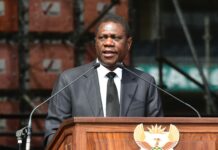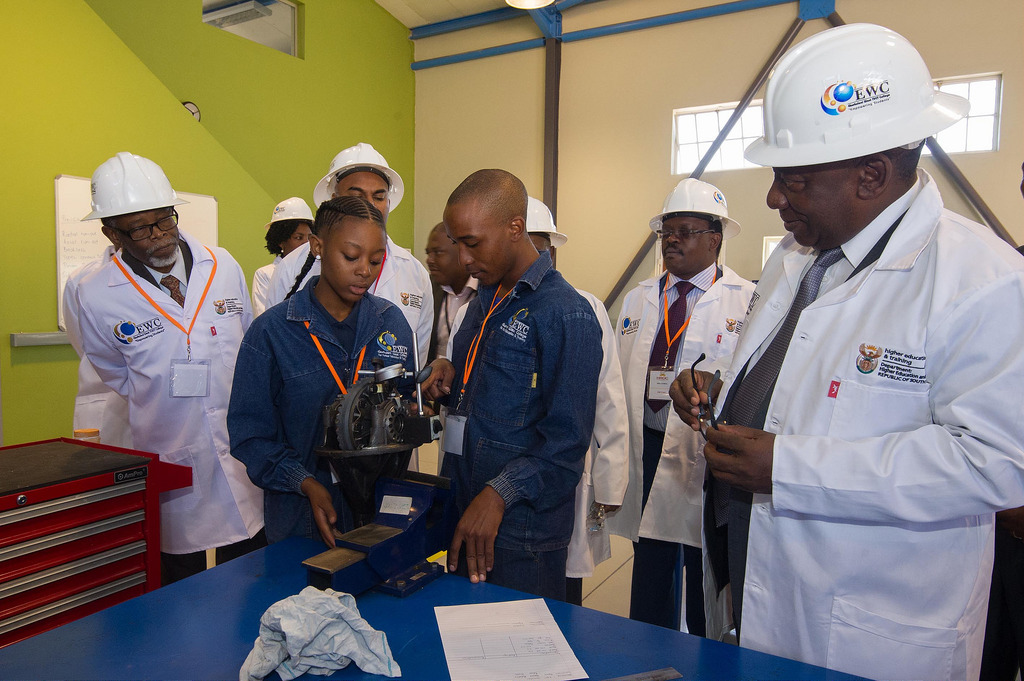President Jacob Zuma’s announcement of free education for the poor came as a shock to many South Africans. Some political analysts in particular interpreted the move as grossly irresponsible, saying that Zuma’s announcement was not only a cheap populist move but one promising a policy that is not financially feasible. However some academics believe this attitude is wrong. They believe free education is not only possible, but attainable – if only Zuma hadn’t announced it mere weeks before universities are due to open.
Dr Vito Laterza of the University of Oslo (and visiting researcher at the Centre for African Studies at the University of Cape Town) told the Daily Vox that the attitude from academics underestimated the impact such a policy could have on the poor.
“I think this is a significant victory for the student movement. Once you establish the rights, and once the plan is rolled out, it’s going to be very difficult for any government – right or left, Ramaphosa or not – to go back on this,†he said.
Laterza agreed that the announcement from Zuma was no doubt an act of political opportunism, but the plan was not about Zuma, rather the opportunity he had put on the table.
“All mainstream politicians are opportunists – it’s not just Zuma. And of course there will be problems in the transition and teething pains in rolling this out to universities on such short notice. But we all have to work for this and push hard, rather than going around as academics or experts and saying it is abjectly impossible – we need to fight to make it work,†he said.
Ihsaan Bassier, a PhD student in economics at the University of Massachusetts (and formerly a member of UCT’s Free Education Planning Group) argued there was nothing radical about Zuma’s proposal, citing that increasing higher education funding to 1% of GDP was perfectly in line with international norms.
“It’s not radical at all to go from 0.7% to 1%. This is perfectly in line with international standards. India spends 1.2% of GDP, Brazil is 0.95%, Malaysia is 1.76%, Ghana is 1.44%. Many of those countries are much poorer than us while we’re a lot more unequal – meaning we have more necessity for redistribution. Even proposals from more conservative academics, such as Nico Cloete, have suggested 1% as optimal,†said Bassier.
Nico Cloete, the director of the Centre for Higher Education Trust (CHET) wrote: “In South Africa, the 2015-16 budget for higher education is R30 billion. If the government were to spend 1% of GDP on higher education, this would amount to R41 billion – an additional R11 billion and almost four times the reported shortfall due to the 0% increase.”
University of Witwatersrand lecturer and political analyst Khaya Sithole said that there was no question on whether Zuma’s proposal was possible, however the timing of the announcement made it nearly impossible to effectively implement the plan given that universities would open in less than a month.
“The way I looked at it, is if anyone presented this model five or six months ago, financial feasibility wouldn’t be the thing we’re talking about now. The reason we speak of financial feasibility now is because the budgeting cycle that would have to be tapped into to release this plan in January 2018 has closed long ago,†said Sithole, who consulted with Wits students in developing a model for free education.
In terms of how the free education policy would be funded, Bassier and Laterza said the most appropriate way would be to increase taxes on the rich, which would make available more than enough to sustainably fund the programme.
“If we look in terms of size, the actual plan according to pro-business media BusinessDay, requires that we need R15 billion more for the first year of this plan. That is 1.3% of the overall tax revenue collected by South Africa last year. So of course you start taxing the upper-middle and big capital, not everybody. So we are talking about a few percentage point increase in company taxes, royalties and progressive taxation for the rich,†said Laterza.
Laterza said that the wealthy in South Africa lived a comfortable and luxurious life and cannot rationally complain about being over-taxed when the standard of living in South Africa was so starkly unequal.
“They eat out at restaurants, go on extravagant vacations – so this is the lifestyle many in South Africa are living. And then they say they are overtaxed? They’re living this life while others are staying in shacks,†he said.
Bassier said he would consider it acceptable if the funds came out of military spending, subsidies to business and increased tax on the wealthy, but it would be a problem if it came out of healthcare, social welfare, education or housing budgets.
Sithole said the problem of with any funding scenario was that given that fact that we only have four weeks until universities open, it didn’t matter what ideas anyone came up with, because none of them can be tapped into within the particular time-frame.
“It’s a very conflicted position that the students find themselves in, because we all agree that this is what we’ve been asking for for a while, but to then ambush it in such a way that it raises suspicions that [Zuma] is simply trying to sabotage us such that it will be difficult for it to work,†said Sithole.
Sithole suspected that the president plans to fund his proposal by making use of one of the recommendations made in the Heher Commission report which found that R100 billion was sitting in surplus in the Unemployment Insurance Fund, and R42 billion in unclaimed pension funds. Sithole believed making use of these funds was deeply unethical and that Fees Commission should have been deeply criticised for ever suggesting these to the president.
“Those are ring-fenced for a particular purpose, it’s really funds that were created through a long process that is reserved for individuals who are in the process of moving between jobs, who have income security have something to cater for them. The bigger problem is that it might set precedent for future projects,†he said.
Sithole said we should remain wary that Zuma might have intended to sabotage students’ legitimate call for free education, but that society should continue to mobilise towards its realisation.
“I think we should adopt the fact that he’s made the announcement but I believe students need to ask the president, ‘But where is the implementation plan, because if you are trying to sabotage this thing then we’re going to see right through you,’†said Sithole.









